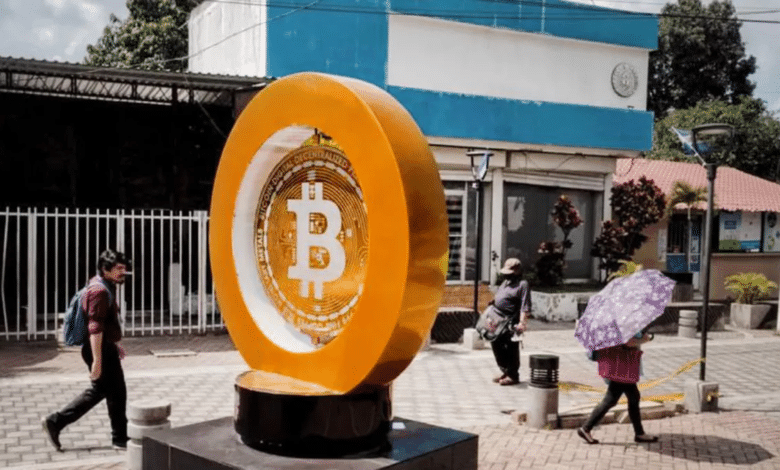
Economy
The world’s first “Bitcoin nation,” El Salvador, has begun scaling back its ambitious crypto dream
The world’s first “Bitcoin nation,” El Salvador, has begun scaling back its ambitious crypto dream, which once positioned the country as a global pioneer in cryptocurrency adoption. While the initiative generated significant international attention, mounting challenges have forced the government to reassess and recalibrate its strategy.
Background of El Salvador’s Bitcoin Initiative
- Adoption of Bitcoin as Legal Tender:
- In September 2021, El Salvador became the first country in the world to adopt Bitcoin as legal tender alongside the U.S. dollar.
- The move, championed by President Nayib Bukele, aimed to:
- Boost financial inclusion for the 70% of Salvadorans without access to traditional banking.
- Attract international investment.
- Reduce remittance fees for Salvadorans sending money from abroad.
- Bold Initiatives:
- Launch of the Chivo Wallet, a government-backed digital wallet.
- Plans for a Bitcoin City powered by geothermal energy from a volcano.
- Issuance of “Volcano Bonds” to finance Bitcoin infrastructure and energy projects.
Why El Salvador is Scaling Back
- Market Volatility:
- Bitcoin’s price has been highly volatile since its adoption. After reaching highs of nearly $69,000 in late 2021, it fell dramatically to around $16,000 by late 2022, before recovering to around $60,000 in 2024.
- The country’s Bitcoin holdings have suffered substantial paper losses, raising concerns about the financial risks involved.
- Limited Adoption by Citizens:
- Many Salvadorans have been reluctant to use Bitcoin due to:
- A lack of trust in cryptocurrency.
- Technological barriers and a preference for cash transactions.
- Despite government incentives, the Chivo Wallet faced issues, including glitches, identity fraud, and difficulties in usage.
- Many Salvadorans have been reluctant to use Bitcoin due to:
- International Criticism:
- The Bitcoin experiment drew criticism from organizations like the International Monetary Fund (IMF), which warned about:
- The risk of financial instability.
- Regulatory and security concerns.
- Potential obstacles to securing loans and financial aid.
- The Bitcoin experiment drew criticism from organizations like the International Monetary Fund (IMF), which warned about:
- Economic Challenges:
- El Salvador continues to struggle with high debt levels, economic uncertainty, and reliance on remittances, which account for about 25% of the GDP.
- The Bitcoin initiative has not significantly improved economic growth or foreign investment as initially hoped.
Signs of Scaling Back
- Reduced Public Promotion:
- The government has notably decreased its promotion of Bitcoin, focusing instead on other economic priorities.
- Bitcoin City Delays:
- The ambitious Bitcoin City project and Volcano Bonds have faced repeated delays and reduced public enthusiasm.
- Policy Shifts:
- While Bitcoin remains legal tender, the government is reportedly less focused on expanding crypto adoption and more on traditional economic stability measures.
- Tourism and Image Focus:
- President Bukele has pivoted to other initiatives, such as promoting tourism and improving public safety, which have yielded more immediate and tangible results.
Outlook for El Salvador’s Crypto Experiment
- Retaining Bitcoin Status:
- El Salvador is unlikely to abandon Bitcoin completely due to the symbolic importance for President Bukele’s image as a forward-thinking leader.
- Bitcoin could remain a part of the financial ecosystem but with a lower emphasis on nationwide adoption.
- Focus on Practical Benefits:
- The government may pivot toward using Bitcoin for specific use cases like tourism or niche industries, rather than everyday transactions.
- Learning from Experience:
- The scaling back reflects a realistic reassessment of the challenges of nationwide crypto adoption.
- The experiment offers valuable lessons for other countries considering similar moves.
Conclusion
El Salvador’s ambitious leap into Bitcoin was a bold experiment that captured global attention. However, market volatility, low adoption rates, and economic pressures have led the country to scale back its crypto dreams. While Bitcoin remains legal tender, the focus has shifted to more pragmatic economic strategies, reflecting the complexities of integrating cryptocurrency into a national economy.